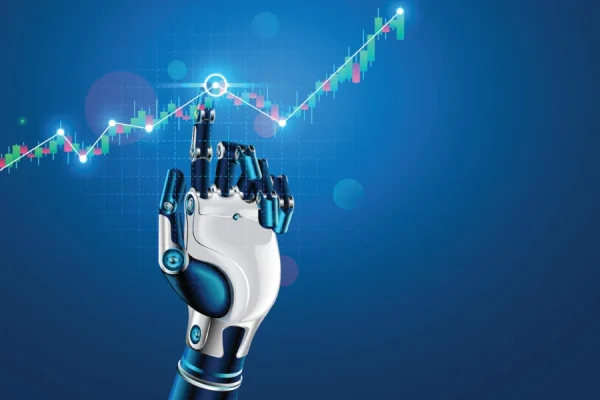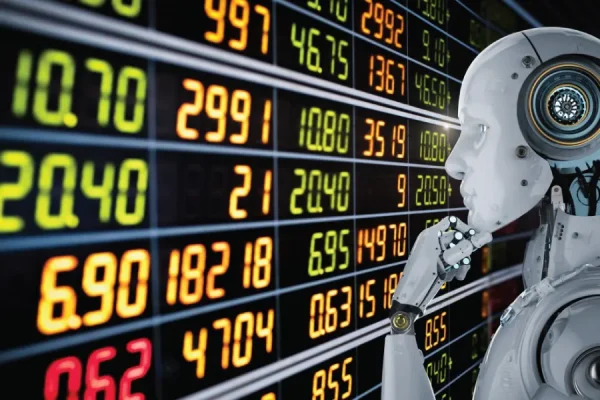The 2025 Revolution: Transforming the Financial Sector and Personal Development
- BUZZAAR
-
Jan 02
- Share post

In 2025, the financial landscape is dominated by decentralization and AI-driven personalization. Blockchain technology, once a niche innovation, has become the backbone of global finance, enabling secure, transparent, and decentralized transactions. Decentralized finance (DeFi) platforms now rival traditional banks, offering services such as loans, investments, and insurance without intermediaries.
Key Trends in the Financial Sector:
- Central Bank Digital Currencies (CBDCs): Governments worldwide have embraced CBDCs, integrating them into the mainstream economy. These digital currencies offer the security of fiat currency with the convenience of cryptocurrency, simplifying global trade and cross-border payments.
- AI-Driven Financial Advisory: Advanced AI systems now provide hyper-personalized financial advice, considering users’ goals, spending habits, and market conditions. These systems outperform traditional advisors in accuracy and accessibility, democratizing financial literacy.
- Green Finance: Sustainability is no longer optional. Financial institutions prioritize green bonds, carbon trading, and investment in renewable energy projects to meet global environmental goals.
- Embedded Finance: Financial services are seamlessly integrated into everyday applications, from shopping platforms to social media, making transactions more convenient and intuitive.These innovations have empowered individuals and small businesses, enabling greater financial inclusion and efficiency. However, they also pose challenges, such as cybersecurity risks and the need for robust regulatory frameworks.Personal Development: The Rise of AI Coaches and Well-Being TechThe personal development landscape has been revolutionized by technology, shifting the focus from generic self-help strategies to tailored, actionable growth plans. AI-driven tools and wearable technologies now serve as personal coaches, guiding individuals toward their goals in real-time.

Key Trends in Personal Development:
- AI-Powered Life Coaches: Virtual coaches powered by AI analyze users’ habits, provide actionable feedback, and adapt strategies to individual needs. These tools combine psychology, neuroscience, and data analytics to optimize personal growth.
- Mental Health Tech: Wearable devices and apps now track mental well-being alongside physical health, offering stress management techniques and mindfulness exercises tailored to the user’s emotional state.
- Immersive Learning: Virtual reality (VR) and augmented reality (AR) technologies provide immersive learning environments, enabling users to practice skills, from public speaking to negotiation, in realistic simulations.
- Global Collaboration: The internet has facilitated a surge in global collaboration, with online platforms connecting individuals to mentors, coaches, and peers from diverse backgrounds, enriching personal growth experiences.
- Work-Life Integration: The boundary between work and personal life continues to blur, with organizations adopting holistic approaches to employee development. Programs now prioritize mental health, emotional intelligence, and lifelong learning.
The Convergence of Finance and Personal Development
Interestingly, the financial revolution is closely tied to personal development. Improved financial literacy, enabled by AI and DeFi, empowers individuals to make informed decisions that align with their personal and professional goals. Conversely, advancements in personal development drive innovation in the financial sector by fostering entrepreneurial thinking and resilience.
Challenges and Opportunities
While the 2025 revolution brings immense opportunities, it also presents challenges:
- Equity and Access: Ensuring equitable access to advanced technologies in both sectors is essential to prevent widening socio-economic gaps.
- Ethical Concerns: The widespread use of AI raises ethical questions about privacy, decision-making autonomy, and potential biases in algorithms.
- Adaptation: Both individuals and organizations must adapt quickly to technological changes to stay competitive and relevant.
Conclusion
The 2025 revolution in the financial sector and personal development signifies a leap forward in human progress. By embracing technology, fostering inclusivity, and prioritizing well-being, societies can harness these advancements to build a future where individuals and institutions thrive together. The key lies in balancing innovation with ethics, ensuring that the benefits of this revolution are shared by all.
As we navigate this transformative year, one thing is clear: the intersection of technology, finance, and personal growth has the potential to redefine the way we live, work, and achieve our goals.

